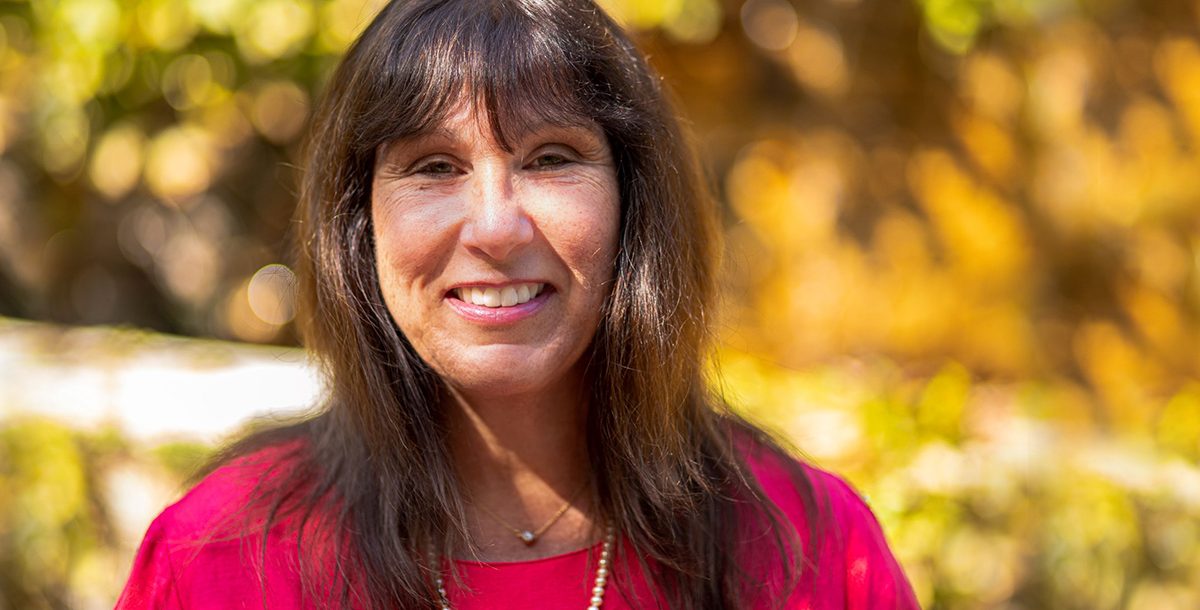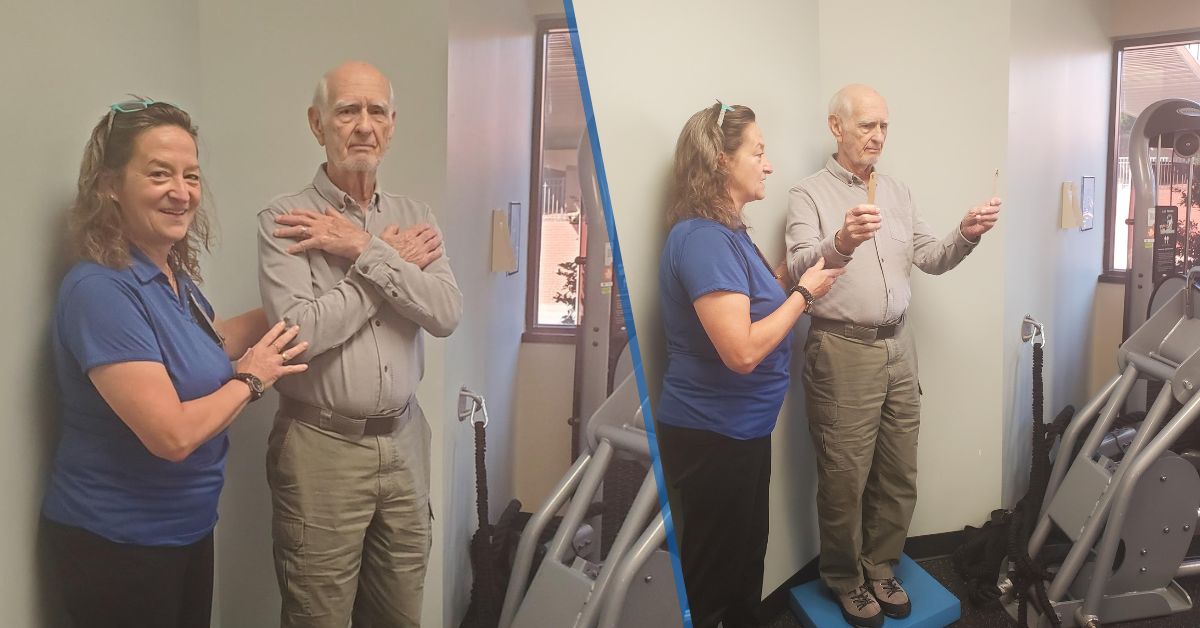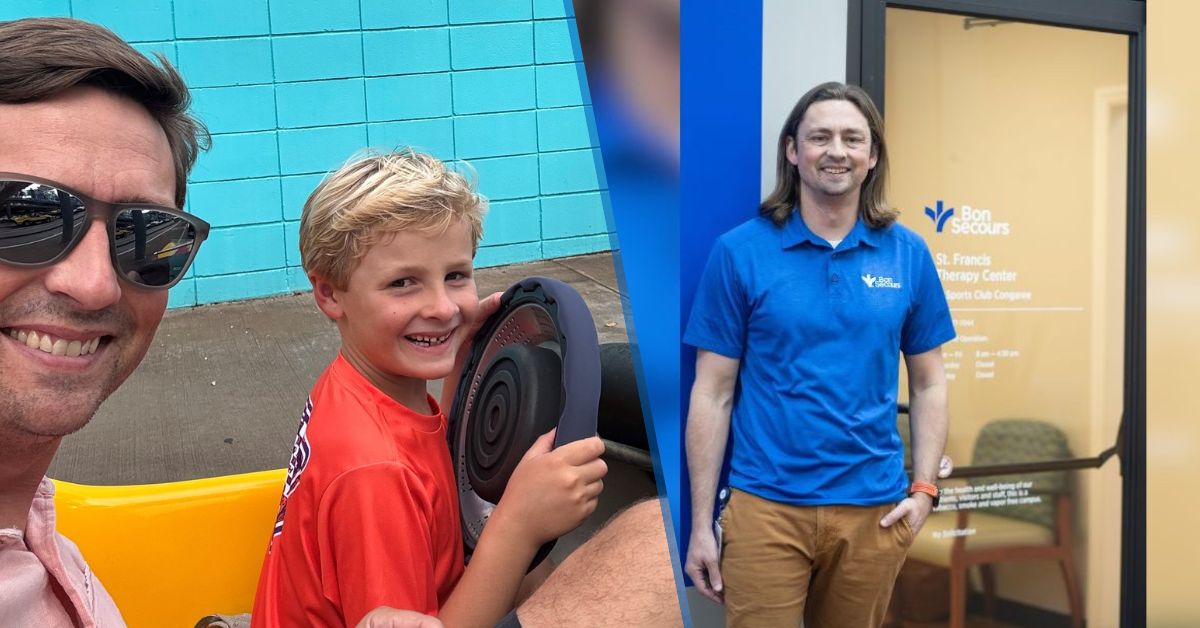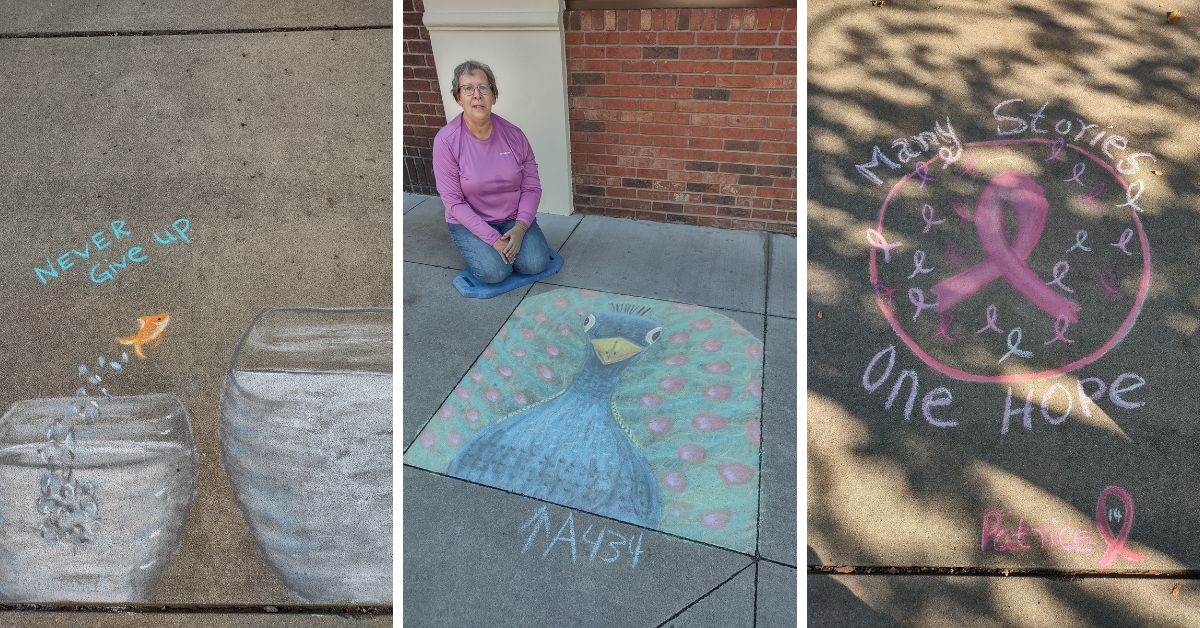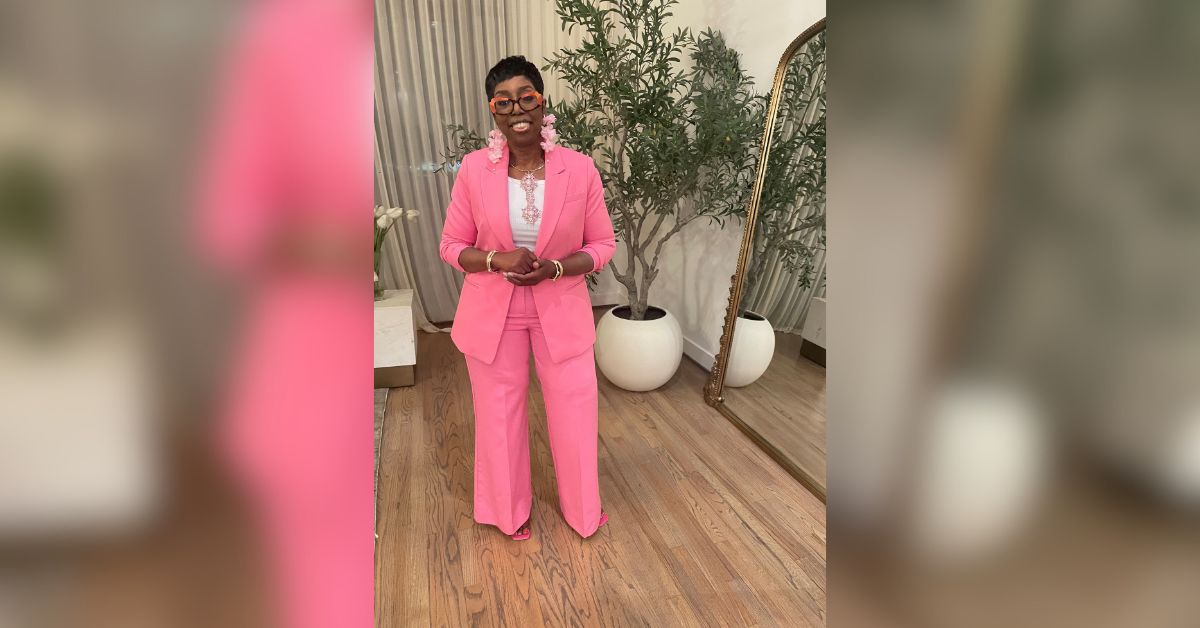When Leah Eidson was diagnosed with breast cancer in May of 2019, her life changed in an instant. Initially, Leah had gone in for her routine mammogram and mentioned some pain under her arm. Much to her surprise, all of this led to an early breast cancer diagnosis.
Leah received this difficult news right around Mother’s Day as well as during her youngest son’s high school graduation activities. While she knew she was going to be in for a fight, she didn’t want everyone to know about her diagnosis just yet.
“My hair has always been a part of who I am. I’ve had long hair all of my life,” Leah shares. “At the time, I worked in sales and knew if I lost my hair everyone would know I was going through something. I wanted to maintain my privacy and my dignity.”
Hair loss, a common side effect of chemotherapy, can have profound psychosocial and quality-of-life consequences. It can cause anxiety, depression, a negative body image, lowered self-esteem and a reduced sense of well-being. However, there’s a new technology that can result in a high level of hair retention for patients undergoing chemotherapy.
This technology, called the Paxman Scalp Cooling System, works by reducing blood flow to the hair follicles. The system does this by reducing the temperature of the scalp through a custom cold cap. Each patient’s cold cap is connected to a temperature-regulated machine that cools the scalp down to between 64 to 71 degrees Fahrenheit before, during and after chemotherapy is administered. This process has shown to be effective in preventing chemotherapy-induced hair loss.
After learning about cold cap therapy from a trusted friend and colleague, Leah began researching it and found that Bon Secours – Richmond would be installing a Paxman Scalp Cooling System around the time she would begin treatment. Leah even delayed her first chemo treatment by two weeks so that the system could be commissioned, and the nurses could be trained.
“Out of everything that I had absolutely no control over during my cancer treatment journey, the one thing I could do for myself was try to preserve my hair through scalp cooling therapy,” Leah says. “It gave me something to concentrate on, to feel empowered by, to look in the mirror every day and still look like myself! It meant the world to me. It kept me positive and hopeful throughout my cancer journey.”
“This technology empowers patients to be able to make a choice potentially to minimize a common side effect of chemotherapy, and may improve their overall outlook during their therapy,” William J. Irvin, Jr., M.D., medical director of oncology for Bon Secours – Richmond and director of clinical research for the Bon Secours Cancer Institute, adds. “It’s our hope that hair retention during treatment at no additional cost allows our patients to maintain some normalcy as they continue on their individual cancer journeys.”
After completing treatment, Leah retained about 40 to 50 percent of her hair. While it did thin out and she had lost some hair, no one else noticed a difference.
Leah was so happy with her experience and results that when the company she had been working for fourteen years was sold and she lost her job, she reached out to Paxman to explore their career opportunities. In her current role as a training and site manager, Leah visits facilities and trains staff members how to operate the system and how to size a patient for the cap. She also works with patients by assisting them during treatment and answering their questions.
“I feel grateful that I can help someone else through the process and bring them some comfort,” Leah shares. “I understand what they are going through: the fear of the unknown, what it’s like to sit in the infusion chair and how it feels to do something for yourself during the journey.”
The scalp cooling therapy adds an additional hour of time both before and after each chemotherapy session, and approximately 50 percent of our patients can successfully receive this treatment. Ovarian and breast cancer patients are the most likely candidates. And age is not an issue. In fact, patients up to 80 years old have received the treatment successfully.
“To other women considering scalp cooling, I would say try it,” Leah says. “We already know what the alternative is. Everyone deserves the opportunity to save their hair if it can be a part of their treatment.”
Bon Secours currently offers the Paxman Scalp Cooling treatment in our Richmond market at the following facilities: Outpatient Infusion Centers (OPIC) at Reynolds Crossing, St. Francis Medical Center, St. Mary’s Hospital and Memorial Regional Medical Center. Rappahannock General Hospital will be the next facility to offer the cold cap treatment.
Additionally, to help these cancer patients during a difficult time, Bon Secours and the Bon Secours Foundation have partnered to cover the cost of the scalp cooling treatments and the cost of the cold caps for patients who are eligible to receive this therapy.
Learn about breast cancer as well as all of the cancer care services we offer at Bon Secours.

